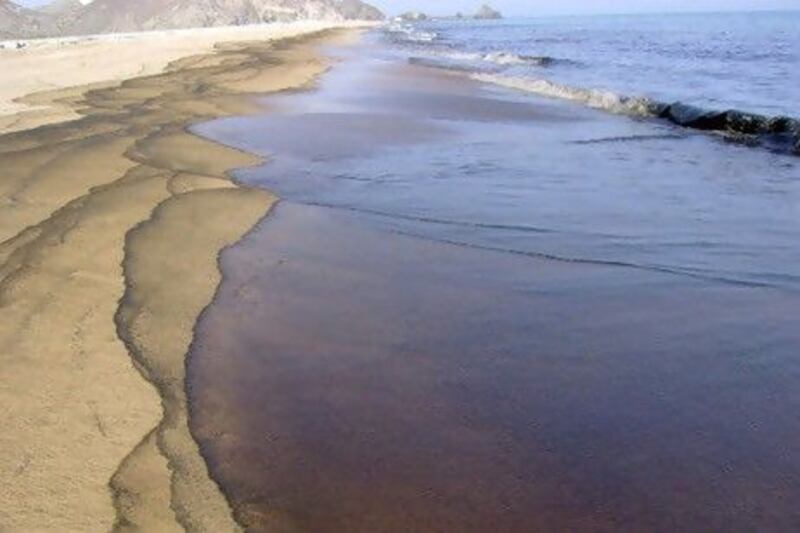FUJAIRAH // The Miramar hotel on the northern coast provides towels soaked in a cleanser so guests can scrub off the tar clinging to their skin after a dip in the sea.
Industry Insights: More premium business content offered by The National
Last Updated: May 15, 2011
A new economy is in the pipeline Fujairah is building a huge new industrial and port zone that will transform the emirate into one of the world's biggest oil trading hubs. Read article
Even if MSCI says no, at least people are talking about us The region's stock exchanges have a lot to think about ahead of Morgan Stanley's decision on whether to include them in its MSCI emerging markets index. Read article
A triumph over the caste system India Dispatch: At the beginning of her life in India, the odds were against Kalpana Saroj, but she defied the unwritten rule that her entire existence was to be lived in the grinding poverty. Read article
Debt restructure need not be Greek tragedy for banking system European policymakers fear the worst for Greece's debt restructuring, but there is a way to restructure it without threatening the banking system. Read article
The sticky substance is thought to come from the oil tankers that navigate nearby waters, bringing wealth to the emirate's industrial zone but plaguing those who live there and make a living from tourism.
"We are suffering from the ships that are passing in the international waters," says Capt Mousa Murad, the general manager of the Port of Fujairah. An international agreement to phase out single-hull tankers, which can have a higher risk of leaking, is expected to provide some relief.
But the UAE needs to adopt a satellite system that can catch tankers suspected of illegally dumping and pull in the military to enforce laws against it, says Capt Murad.
"The people, for example, in Singapore, what did they do?" he asks. "They did the monitoring. They did the satellite system.
"In Japan, the same thing - satellite system. In Europe and in Scandinavia - satellite system. We should do a model in the UAE. And if we do a model in the UAE, other people will follow."
Fujairah residents and beachgoers were reminded of the need to address the issue last month, when a 10km stretch of shoreline from Khor Fakkan to Al Aqah was covered in oil.
The Ministry of Environment and National Transport Authoritywere investigating the cause of the spill, which was expected to cost hundreds of thousands of dirhams to clean up.
In 2006 the UAE signed the International Convention for the Prevention of Pollution (Marpol), and two years later said single-hull tankers would not be allowed to pass through UAE waters after 2010.
Some older tankers use the same hull for ballast and oil storage, meaning the sea water used as ballast mixes with the crude.
While there are facilities to clean out the hulls, some tankers are believed to dump the mixture into the ocean at night to avoid the extra cost.
There is also a side-benefit to the ban. As older tankers are forced out of UAE waters, the oil storage they once provided offshore will have to be found elsewhere.
"The demand for storage which is out there in the sea has to come onshore," says Harshavardhan Sinha, the chief executive of Gulf Petrochem, which is building storage tanks at the Fujairah complex site.





